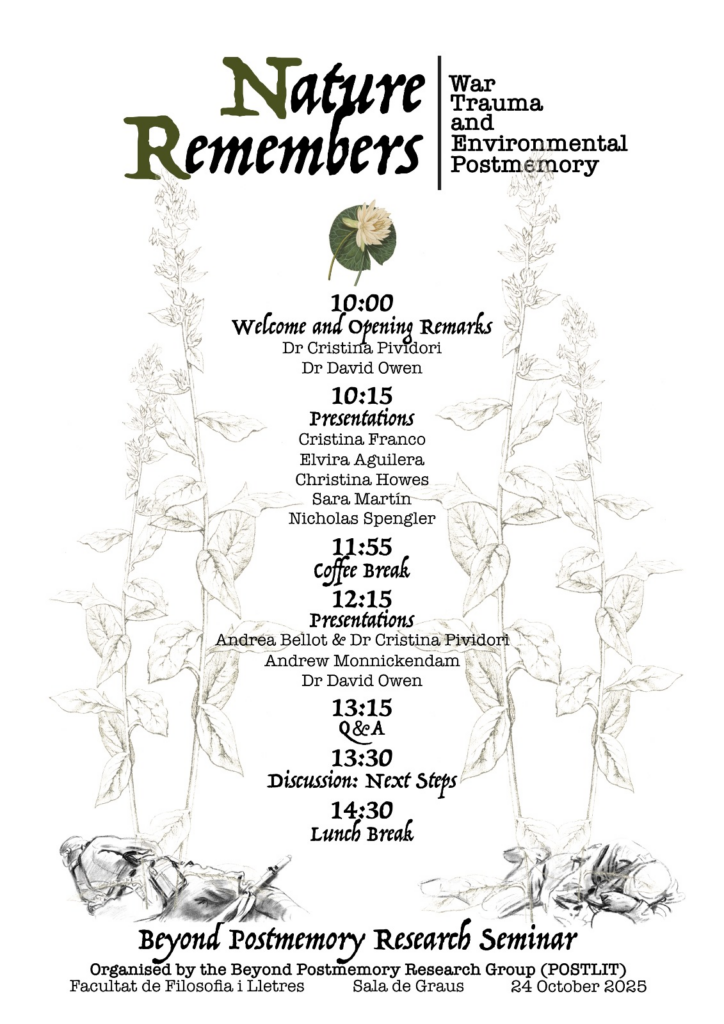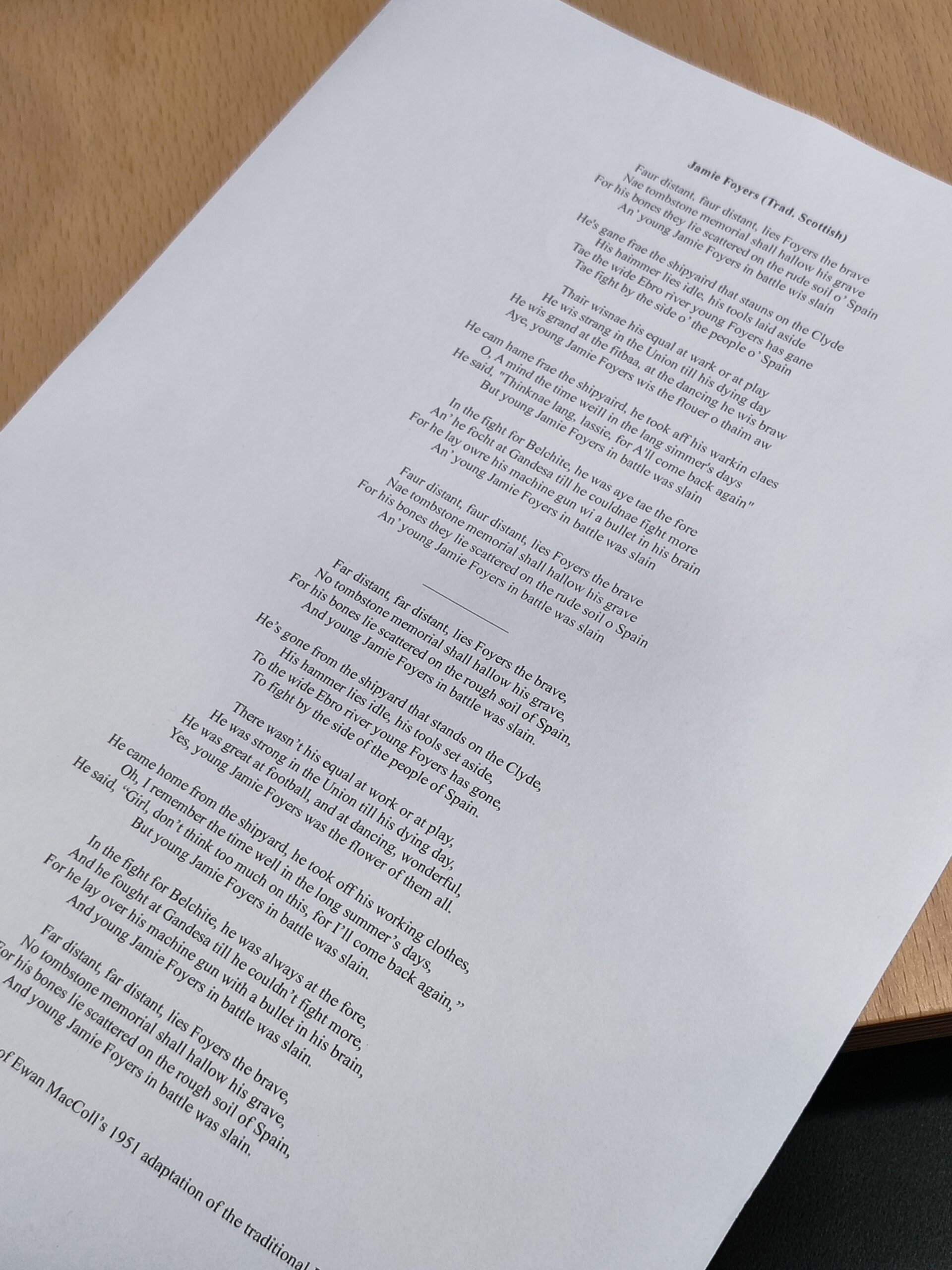On October 24, we had the pleasure of hosting the seminar ‘Nature Remembers: War, Trauma, and Environmental Postmemory’ at the Universitat Autònoma de Barcelona. In a series of individual presentations, the members of the research group shared their latest research on the notion of “environmental postmemory”, exploring how ecosystems and non-human agents transmit and transform the legacies of conflict across generations.

We were honoured to welcome Dr María Gaviña, from Universitat de València, who joined us in the seminar and engaged in lively discussion with our students and faculty. Following a warm reception by Dr Cristina Pividori, the first block of presentations was opened by the group’s PhD students, Cristina Franco and Elvira Aguilera, who shared their analyses of Michael Cunningham’s Day (2024) and Hala Alyan’s Salt Houses (2017). They explored how nature functions as an active agent in remembering Palestinian displacement and representing the pandemic as a form of conflict within ecologically vulnerable settings. They were followed by Dr Christina Howes, whose intervention on Richard Flanagan’s novel Question 7 (2023) expanded on Rob Nixon’s theory of slow violence and Stef Craps’ articulation of postcolonial memory and planetary amnesia.
Dr Sara Martín centred her presentation on the concept of ‘zero ecology’ in relation to Cormac McCarthy’s The Road (2006), while Dr Nicholas Spengler focused his intervention on a new materialist approach to deal with the memory of war represented through the brains and bodies of human and nonhuman beings in Ocean Vuong’s On Earth We’re Briefly Gorgeous (2019) and John Akomfrah’s video installment Vertigo Sea.
After the coffee break, Dr Andrea Bellot and Dr Cristina Pividori presented their joint paper on Lynn Nottage’s theatre play Ruined (2008) and Eve Ensler’s In the Body of the World (2013), set against the backdrop of the wars in the Democratic Republic of the Congo. Both argued that war marks both the female body and the land, transforming them into sites of traumatic memory and resistance through theatre as an enactor of postmemory. Next, Prof. Andrew Monnickendam travelled through the Vietnamese mausoleums and statues as sites of material and environmental memory. Finally, Dr David Owen presented his paper on the Scottish folk song “Jamie Foyers”, which he also performed, arguing that performances are dynamic rituals of remembrance.
